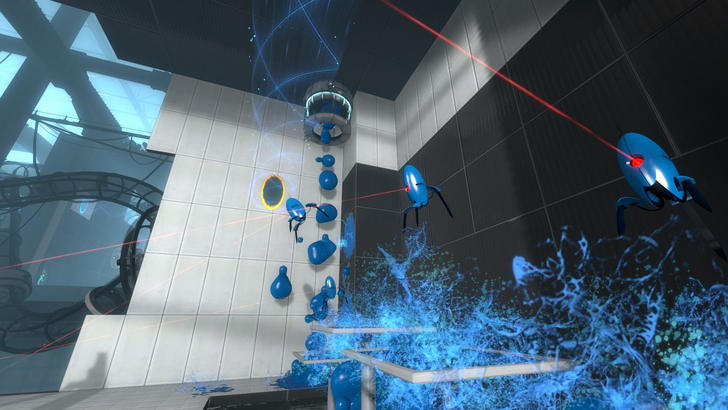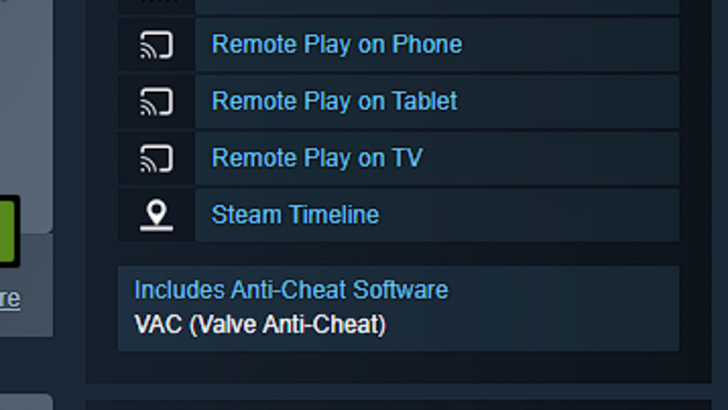Steam Anti-Cheat Tool Stirs Division

Steam is now requiring all developers to indicate whether their game uses the divisive Kernel mode anti-cheat system. Read on to learn more about Steam's changes to its platform and Kernel Mode Anti-cheat.
Steam Unveils New Tool for Describing Anti-Cheat in Games
Kernel Mode Anti-Cheat Must Be Indicated, Steam Says

In a recent update on the Steam News Hub, Valve announced a new feature for developers to disclose the use of anti-cheat systems in their games, aiming to enhance both developer communication and player transparency. This new option, accessible through the "Edit Store Page" section on the Steamworks API, allows developers to clearly indicate whether their games utilize any form of anti-cheat software.
For client or server-based anti-cheat systems that aren’t kernel-based, this disclosure remains optional. However, for games using kernel-mode anti-cheat, indicating its use is mandatory—a move likely designed to address the growing community concerns about the intrusiveness of these systems.
Kernel-mode anti-cheat software, which detects malicious activity by examining processes directly on a player’s device, has been a hot topic since its inception. Unlike traditional anti-cheat systems that monitor for suspicious patterns within the game environment, kernel-mode solutions access low-level system data. This access raises concerns among some players about potential impacts on device performance, security, and privacy.
Valve’s update seems to be a direct response to ongoing feedback from both developers and players. Developers have sought a straightforward method to communicate anti-cheat details to their audience, while players have demanded greater transparency regarding the anti-cheat services and any additional software installations required by games.
In an official statement on the Steamworks blog, Valve explained, "We’ve heard from more and more developers recently that they’re looking for the right way to share anti-cheat information about their game with players. At the same time, players have been requesting more transparency around the anti-cheat services used in games, as well as the existence of any additional software that will be installed within the game."
This change not only streamlines communication for developers but also empowers players by providing clearer insights into the software practices employed by games on the platform.
Initial Comments are as Divisive as Kernel Mode Anti-Cheat

The announcement of Steam’s latest feature update, which rolled out on October 31, 2024, at 3:09 a.m. CST, is now live and operational. Counter-Strike 2's Steam page, shown above, now prominently features its use of Valve Anti-Cheat (VAC) to reflect this change.
Community reactions have been largely positive, with many users applauding Valve for its "pro-consumer" approach. However, the update’s implementation hasn’t been without its critics. Some community members have pointed out grammar inconsistencies in the field’s display and found Valve’s wording—particularly the use of "old" to describe past games that might update this information—awkward.
Additionally, players have raised practical questions about the feature, such as how anti-cheat labels will handle language translations or what qualifies as "client-side kernel-mode" anti-cheat. PunkBuster, a frequently debated anti-cheat solution, was one notable example. Others have used the opportunity to voice ongoing concerns about kernel-mode anti-cheat, which some still view as overly invasive.
Despite this initial mixed reaction, Valve appears committed to continuing its pro-consumer platform changes, as demonstrated by their transparency regarding a recent California law aimed at protecting consumers and combating false and misleading advertising of digital goods.
Whether this will alleviate the community's apprehension about the continued use of kernel mode anti-cheat remains to be seen.
-
You can now dive into the action-packed world of Fortnite Mobile on your Mac! Follow our comprehensive guide on how to play Fortnite Mobile on Mac with BlueStacks Air and elevate your gaming experience.In Fortnite Mobile Chapter 6 Season 2, the island is bustling with Non-Playable Characters (NPCs)Author : Patrick Apr 18,2025
-
Dive into the enchanting world of *Reborn Skills Master*, a captivating Roblox game that will enthrall any fantasy fan. With its immersive setting, you'll find yourself constantly engaged as you embark on a thrilling quest to upgrade your sword, enhancing its power to conquer foes across various staAuthor : Daniel Apr 18,2025
- Hitman Devs' "Project Fantasy" Hopes to Redefine Online RPGs
- The Elder Scrolls: Castles Now Available on Mobile
- Minecraft's 'In Your World' Mod: A Chilling Update
- Resident Evil Creator Wants Cult Classic, Killer7, to Get a Sequel By Suda51
- Deadlock Characters | New Heroes, Skills, Weapons, and Story
- Fortnite Update: Mysterious Mythic Item Teased in Latest Leak





















![[777Real]スマスロモンキーターンⅤ](https://images.0516f.com/uploads/70/17347837276766b2efc9dbb.webp)

